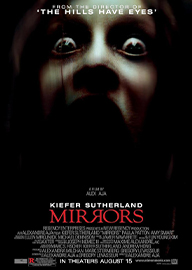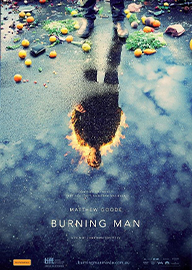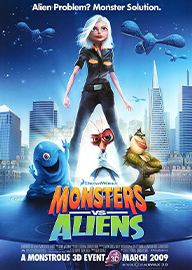Case 39
- 6.2
- Mystery
- 2009
- 1h 51m
- PG-13
a chilling supernatural horror film starring Renée Zellweger as a social worker who uncovers disturbing secrets while investigating the case of a young girl, played by Jodelle Ferland, who may be the victim of abuse. As the mystery unravels, a terrifying truth emerges that leads to life-threatening consequences. This dark thriller is filled with suspense and shocking twists that will keep you captivated till the very end.













Comments
0Reviews
0Summery
1Please sign in to comment.
Please sign in to review.
Case 39 (2009) is a psychological horror thriller that skillfully blends suspense, supernatural elements, and a chilling exploration of trust and deception. Directed by Christian Alvart and starring Renée Zellweger in a rare venture into the horror genre, the film weaves a tense narrative that leaves audiences questioning the true nature of evil. With a haunting atmosphere and a plot that steadily escalates in terror, Case 39 remains a compelling entry in the realm of psychological horror.
The story centers on Emily Jenkins (Renée Zellweger), a dedicated and compassionate social worker who is accustomed to dealing with difficult child welfare cases. Her world is upended when she takes on the case of Lilith Sullivan (Jodelle Ferland), a shy and seemingly innocent 10-year-old girl living with deeply abusive parents. Convinced that Lilith’s life is in imminent danger, Emily intervenes, successfully rescuing the girl and placing her in protective custody. However, her concern for Lilith drives her to take the unprecedented step of fostering the child herself, believing she can provide the safe, loving home Lilith has never known.
As Lilith adjusts to her new life with Emily, strange and increasingly sinister occurrences begin to unravel the social worker’s orderly existence. Emily’s friends and colleagues, including child psychologist Doug (Bradley Cooper) and Detective Mike Barron (Ian McShane), start to experience inexplicable and horrifying events. It becomes clear that Lilith’s past harbors dark secrets far beyond what Emily initially imagined. As Emily delves deeper into the mystery, she discovers that the evil surrounding Lilith might not be a product of her parents’ abuse but something far more malevolent and supernatural.
The tension in Case 39 builds methodically, with the film’s pacing carefully designed to heighten suspense. From eerie whispers in the dark to increasingly violent confrontations, the narrative unfolds in a way that keeps viewers on edge. The cinematography amplifies the unsettling atmosphere, with dimly lit interiors and claustrophobic framing creating a sense of unease that mirrors Emily’s growing paranoia. The film avoids relying solely on jump scares, instead focusing on psychological tension and a creeping sense of dread that lingers throughout.
Renée Zellweger delivers a strong performance as Emily, portraying her as a determined and empathetic professional whose good intentions lead her into a nightmare. Zellweger’s nuanced portrayal captures Emily’s transition from confident social worker to a woman grappling with fear and desperation as she faces an unimaginable evil. Jodelle Ferland is equally compelling as Lilith, embodying the character with an unnerving blend of vulnerability and menace. Her ability to shift from sweet and innocent to cold and malevolent is a testament to her skill as a young actress. The supporting cast, including Bradley Cooper and Ian McShane, provides depth to the story, each character contributing to the growing sense of isolation and dread that surrounds Emily. Cooper’s role as Doug, in particular, adds an additional layer of tragedy as he becomes one of Lilith’s unsuspecting victims, underscoring the far-reaching impact of the supernatural force at play.
Case 39 explores themes of trust, manipulation, and the blurred lines between good and evil. It raises questions about the lengths to which people will go to protect the innocent and the dangers of assuming appearances reflect reality. The film’s supernatural elements are grounded in its psychological underpinnings, making the horror feel both personal and universal. The narrative delves into the fears of parenthood, responsibility, and the vulnerability that comes with opening one’s heart to another. While Case 39 received mixed reviews upon release, with some critics citing familiar genre tropes, it has since found an appreciative audience among fans of psychological horror. Its atmospheric tension, strong performances, and thought-provoking themes make it a standout for those seeking a blend of emotional depth and supernatural scares.
In conclusion, Case 39 is a haunting exploration of trust and deception, wrapped in a chilling horror narrative. With compelling performances, a tightly wound plot, and an atmosphere of creeping dread, it remains a memorable entry in the psychological horror genre. For those who enjoy films that challenge perceptions and delve into the darker corners of human experience, Case 39 offers an intense and unsettling cinematic journey.